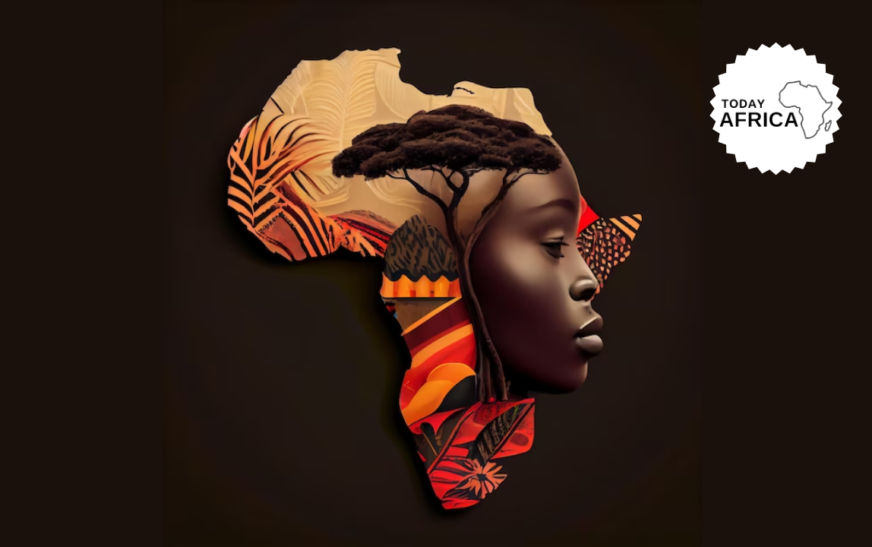In African consumer markets, trust is everything.
A small business can sell out its products in a local community simply because people trust the owner, while a flashy multinational with billboard campaigns might still struggle to gain traction.
Unlike more mature markets, African buyers often prioritize trust, relationships, and reputation over logos or advertising budgets.
The challenge? Many entrepreneurs and startups don’t have millions to pour into glossy branding campaigns.
But here’s the good news: you don’t need a huge budget to win customer trust in African markets. What you need is a smart strategy that leverages authenticity, consistency, and the unique cultural dynamics of the continent.
In this blog post, we’ll dive deep into how to build trust in African consumer markets without big branding budgets.
Why trust matters in African consumer markets
Trust plays a unique role in African economies. In many countries, regulatory systems designed to protect consumers are either underdeveloped or poorly enforced.
This leaves consumers wary of new products and hesitant to try unproven services.
Buyers will often prioritize recommendations from friends, family, or respected community figures over glossy advertisements. A neighbor’s testimony about a reliable product can carry far more weight than a television commercial.
Another reason trust matters is the prevalence of scams and counterfeit goods. From imitation electronics to substandard pharmaceuticals, consumers have learned to be cautious.
In Nigeria, for instance, a World Health Organization report noted that nearly one in ten medical products on the market is substandard or falsified. This makes authenticity a powerful differentiator.
Commerce across the continent is also highly relational. Markets are not just about products but about people. Buyers want to know who is behind a brand and whether that person can be trusted.
This emphasis on relationships over purely transactional interactions means that building trust is not just about closing a sale; it is about fostering loyalty and community credibility.
7 steps to build trust in African consumer markets without big budgets
1. Delivering consistently good products and services
The first and most important step in building trust is to deliver consistently on your promises. No matter how strong your storytelling or branding may be, it will fall apart if your product or service does not meet basic expectations.
In African consumer markets, where disposable income can be limited, people are less forgiving of bad experiences.
A family that spends a significant portion of its income on a product cannot afford to be disappointed, and one negative experience can spread quickly through word-of-mouth.
This is why prioritizing quality is essential.
Take Innoson Motors, Nigeria’s first indigenous automobile manufacturer. The company did not build its reputation through lavish marketing.
Instead, it focused on producing cars and buses that were tailored to withstand Nigeria’s challenging road conditions. By proving that its vehicles could deliver on their promise, Innoson built a reputation that advertising alone could never have bought.
For small businesses, this principle applies just as strongly. Instead of spreading resources thinly across multiple product lines, focus on doing one thing exceptionally well.
A skincare brand in Uganda, for example, might start with a single high-quality shea butter cream. By ensuring that the product consistently delights customers, the brand builds credibility that can later support expansion.
Read Also: Entrepreneur’s Guide to Recruiting First Employees in Africa
2. Leveraging community and word-of-mouth
In Africa, the most effective marketing tool is often the oldest: word-of-mouth. People tend to trust the opinions of their peers far more than they trust advertisements.
This is because communities, whether in urban neighborhoods or rural villages, are tight-knit, and social credibility matters.
To build trust without spending heavily on branding, businesses should intentionally cultivate community advocates. These do not need to be celebrities.
They could be respected local figures such as teachers, pastors, or market leaders. When these individuals vouch for your product, it carries significant weight because they are embedded in the same context as your target customers.
Consider the case of M-Pesa, the mobile money service that transformed financial transactions in Kenya and beyond. M-Pesa’s growth was not driven primarily by advertising but by satisfied users who convinced others to try it.
A farmer in rural Kenya might hear about M-Pesa from a neighbor who received payment instantly. That neighbor’s testimony was far more persuasive than any billboard in Nairobi.
Businesses can also structure referral systems to encourage customers to bring in friends and family. Even something as simple as offering a discount for every referred customer can help.
Unlike large branding campaigns, referrals leverage the trust people already have in each other, and in African contexts, this social trust is extremely powerful.

3. Transparency and authenticity
One of the fastest ways to gain or lose trust is through honesty. African consumers are increasingly wary of brands that overpromise and underdeliver.
To build credibility, it is often better to be upfront about limitations than to exaggerate what a product can do.
Fintech startups in Africa offer a good example of how transparency can build trust. Traditional banks often hide fees in fine print, leaving customers frustrated.
By contrast, fintech companies like Flutterwave or Paystack have built reputations for clearly stating transaction charges and providing easy-to-understand pricing.
This transparency is a key reason why they have gained rapid adoption.
Authenticity also matters. Consumers are more likely to support a brand if they can connect with its story.
Entrepreneurs who openly share why they started their business, the challenges they faced, and the values guiding their work often resonate more deeply than faceless corporations.
Healthy U, a Kenyan health store, grew its identity around being family-owned and committed to wellness. This authenticity made customers feel like they were buying from a trustworthy partner rather than an impersonal retailer.
4. Using digital channels wisely
While television and billboard campaigns remain expensive, digital platforms offer cost-effective ways to build trust. Social media has become a public stage where brands can interact directly with consumers, showcase testimonials, and demonstrate transparency.
In African markets, buyers often check a business’s online presence before making a purchase.
A vibrant Instagram page showing happy customers, behind-the-scenes operations, or real-time engagement can serve as proof of credibility.
Unlike traditional advertising, social media requires creativity more than cash.
WhatsApp has also emerged as an especially powerful tool. In many countries, WhatsApp is not just a messaging app but a marketplace.
Businesses use it to share product catalogs, send videos, and answer customer inquiries instantly. Because interactions on WhatsApp feel personal, they strengthen relationships and reinforce trust.
See Also: Top 7 Highest-paying Tech Jobs in Nigeria This Year
5. Collaborating instead of competing
Another strategy for building trust without a large branding budget is to collaborate with others who already have credibility. Partnerships allow small brands to borrow legitimacy from established names.
For example, a small juice producer in Ghana could partner with a well-known supermarket chain.
Simply being stocked on the shelves of a respected retailer gives customers confidence that the product is safe and reliable.
Similarly, startups can collaborate with micro-influencers who may not have millions of followers but have deep credibility within their niche communities.
A fashion startup in Accra could work with popular university bloggers who are trusted voices in campus culture. Because these influencers are perceived as relatable and authentic, their endorsements often carry more weight than those of distant celebrities.
6. Prioritizing excellent customer service
Customer service can make or break trust in African consumer markets. Poor service is one of the most common complaints customers have, and businesses that excel here quickly differentiate themselves.
Being easy to reach is essential. Whether through a WhatsApp number, phone line, or in-person customer desk, businesses must make themselves accessible. y
A quick, polite, and solution-oriented response can turn a dissatisfied buyer into a loyal one.
Going the extra mile also leaves lasting impressions.
A Nigerian food delivery company once gained a reputation for delighting customers by adding free items when an order was incomplete, even when the customer did not complain.
Such gestures build emotional connections that advertising cannot replicate.

7. Demonstrating social proof
People want to see evidence that others trust you. This is why showcasing testimonials, reviews, and visible impact is vital. When customers see real people praising your brand, they are more likely to believe in it.
Short videos of satisfied customers can be shared on social media, while written reviews can be featured on websites. Beyond individual testimonials, businesses should also highlight how they contribute to the community.
For example, Kigali Farms in Rwanda emphasizes that buying mushrooms from them supports efforts to combat malnutrition. This kind of social proof not only reassures customers but also makes them feel part of a larger cause.
Read Also: Building a B2B SaaS Company for African SMEs: Complete 2026 Playbook
8. Educating the market
Distrust sometimes arises from ignorance. Consumers may not understand how a product works or why it is valuable. By educating your market, you bridge this gap and position yourself as an authority.
A South African cosmetics startup, for example, might post tutorials on how to use natural skincare products. Over time, these free lessons establish the brand as a trusted expert.
Customers begin to feel confident that the company understands their needs and is not merely trying to sell.
Education can also take the form of workshops, webinars, or partnerships with local institutions. The key is to provide value before asking for a purchase. In doing so, businesses build trust while also expanding the market for their products.
9. Adapting to local realities
One reason multinational corporations sometimes struggle in Africa is their failure to adapt products to local contexts. Building trust requires showing that you understand and respect local realities.
Tecno Mobile provides a striking example.
While global phone makers prioritized sleek designs and advanced cameras, Tecno recognized that African consumers needed affordable phones with long battery life and dual SIM capability.
By addressing these specific needs, Tecno became one of the most trusted mobile brands on the continent.
Cultural sensitivity is equally important. A clothing brand in Senegal, for example, might align its collections with Tabaski celebrations, tapping into traditions that already carry trust and social significance.
In doing so, the brand signals that it respects and understands the community it serves.
10. Staying consistent
Finally, consistency is the glue that holds trust together. Consumers want to know that each time they interact with a brand, they will get the same level of quality and service.
Inconsistency raises suspicion and undermines credibility.
Consistency applies not just to products but also to communication. A brand’s tone, values, and promises must remain steady.
When businesses oscillate between different identities or change their messaging too often, they appear unreliable. But when a company shows up predictably and delivers reliably, customers relax into trust.
See Also: Scaling From 0 to 1,000 Customers in Francophone Africa
Conclusion
Trust is the currency of African consumer markets. While big branding budgets may help create awareness, they cannot buy the credibility that comes from authenticity, consistency, and community engagement.
Businesses that want to succeed must focus less on appearances and more on substance.
The truth is that in Africa, trust is not just a nice-to-have. It is the foundation of growth. Once won, it becomes a shield against competition and a magnet for loyal customers.
If you are building a business in Africa, focus on winning hearts through honesty and reliability, and let your reputation become your most powerful marketing tool.
FAQs
Why is trust so important in African consumer markets?
Because consumers often face scams, poor product quality, and limited legal protections, trust is a key driver of buying decisions.
Can small businesses compete with big brands in Africa?
Yes. Many small businesses win by building personal relationships and focusing on consistent quality, something big brands often struggle to do at scale.
How do I build trust online in African markets?
Leverage social media for testimonials, be active on WhatsApp, and maintain responsive customer service. Transparency is critical.
Do I need influencers to build trust?
Not necessarily. Micro-influencers and community leaders can be more effective and affordable than celebrities in many markets.
What’s the fastest way to build credibility?
Deliver on your promises consistently. A good product and reliable service are the fastest trust-builders.
Comment and follow us on social media for more tips:
- Facebook: Today Africa
- Instagram: Today Africa
- Twitter: Today Africa
- LinkedIn: Today Africa
- YouTube: Today Africa Studio

















2 Comments
I just wanted to take a moment to say how much I appreciate your blog posts. They’re always well-written, informative, and keep me coming back for more. Keep up the great work!
Thank you for finding value in the article.
Comments are closed.